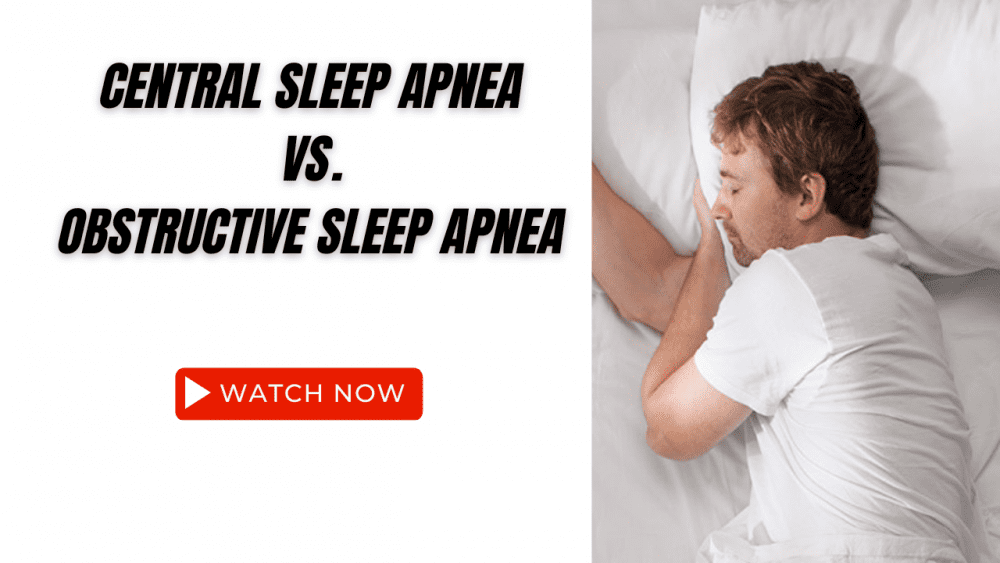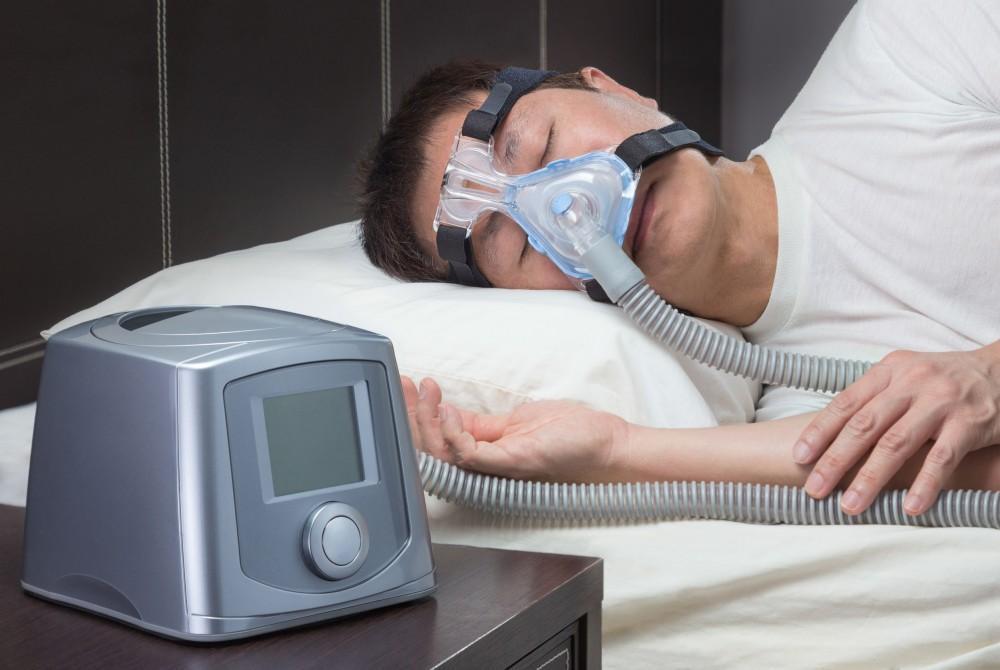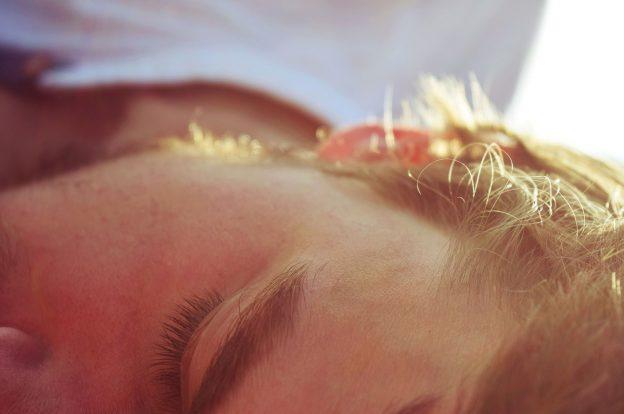
Men: Here’s How Sleep Deprivation Can Mess with Your Health

June is all about the guys: with Father’s Day just around the corner, and Men’s Health Week underway, this month is a great time to take a moment and reflect on the lives and health of men. Men face specific challenges when it comes to all aspects of health — they’re less likely to see a doctor when they’re sick, thanks to outdated stereotypes, and mental health concerns often take a backseat to work and family obligations. There’s a fair amount of pressure on men to tough out any health concerns they may have, which means that if they do end up on the exam table, they’re likely to play down what’s really going on.
Convincing men to take physical and mental health ‘red flags’ seriously means leaping over a few hurdles thrown up by societal gender perceptions, and that goes double for sleep. As a whole, we’re all more likely to write sleep off as something that’s nice to have, not something we need. Of course, the opposite is true. And guys? If you don’t get enough sleep often enough, it can mess with your body and head in some really serious ways.
Sleep deprivation kills men’s sex drives
This is an oversimplification, admittedly. Less sleep isn’t exactly tied directly to low libido. Instead, it has to do with the link between testosterone levels and sleep. Testosterone is, of course, the male sex hormone. It’s tied to everything from body hair to muscle production, energy, and of course — sex drive.
It’s normal for testosterone production in men to begin to decline as they age, but not getting enough sleep has been proven to drive down T-levels in perfectly healthy men as young as 24 after even one week of restricted rest. Lower testosterone levels don’t just mean a tamer sex drive, though. The hormone is responsible for much of men’s well-being, which is why sometimes…
Men who sleep less often weigh more
Hormones, how they work, and how we react to them are all aspects of the endocrine system. Testosterone isn’t the only thing that’s affected when we don’t have good sleep, but when it comes to men’s health, it is a pretty big red flag. Having less of it means having a much harder time maintaining a healthy weight. Besides a marked increase in BMI, the low energy levels that can be a hallmark of low-T can mean a more sedentary lifestyle.
These same metabolic risk factors can also contribute to being at higher risk for diabetes and outright sleep disorders like Sleep Apnea, which can in turn lead to an even steeper drop in testosterone.
Your emotional health takes a nosedive on no sleep
Sleep deprivation also messes with your head. Even one night of missed sleep can make anyone out of sorts and foggy the next day, but prolonged periods of insomnia are especially bad news, compounding conditions like depression and anxiety. Men, in particular, have trouble reading social cues and performing cognitive tasks that require higher judgement and thinking when they are sleep deprived, because of the area of the brain that’s affected: the frontal lobe. That’s the part of our brains that’s responsible for risk-taking sensitivity, moral reasoning and inhibition.
One study in particular found that men functioning on less sleep were likelier to misread a woman’s interest in them and in sleeping with them, and likened the sleep deprived brain to one that’s been impaired by alcohol. It’s not hard to understand the implications of functioning all day with a brain that thinks it’s intoxicated!
Your body’s immune system can weaken
This is true for everyone, but important for men to pay attention to. The fact that the production of cells responsible for fighting off bugs — T-cells — decreases when we skimp on sleep is well-documented. When you toss in the fact that the production of inflammatory cellular agents — cytokines — ratchets up simultaneously even after just one night of poor sleep, and it’s easy to see how weeks of tossing and turning can mean more head colds, chest coughs, and sick days.
Since men are more likely to attempt to ‘tough out’ illnesses at home instead of visiting a doctor, serious bacterial infections like strep can lay them low and put them at risk for bigger problems down the road.
Insomnia has a startling link to cancers more likely to affect men
We’re only just now beginning to scratch the surface of how sleep health impacts our cancer risk as a whole, but we do know two startling things already. The first is that men who do shift work without napping during the day have are more likely — 43% more likely, to be specific — to be diagnosed with cancer later and are twice as likely to die as a result.
Another study that followed over 400,000 American men over three decades found that men who reported getting three to five hours of sleep consistently were over 50% more likely to die of prostate cancer when compared to men who reported getting seven hours or more a night.
Lack of sleep can mean a lack of fertility
We talk a lot about sleep deprivation after baby, and in the past, we’ve discussed what that does to mom in those early weeks. Dads feel the effects of newborn-induced sleep deprivation, too, but the real baby-related sleep risk can come before you even welcome your new bundle of joy. Besides the drop in testosterone we already discussed, a Danish study explored how sleep deprivation can harm male fertility.
The study took the sleep habits of nearly a thousand men into consideration and found that the men who got the least sleep or poorest quality sleep had a 25% reduction in their sperm count. We’ve known that there was a potential link between sleep and fertility for a while now, but testosterone seemed like a likely culprit until the Danish study found that it’s likely a separate issue altogether.
Chronic sleep deprivation can mean serious cardiovascular problems
Sleep is serious business, and when we don’t seriously try to get enough of the good stuff, we put ourselves at further risk for conditions like diabetes, stroke, and heart attack.
Again, that’s true for men and women. But men are at much higher risks for sleep disorders like obstructive sleep apnea — maybe you snore like a chainsaw — and Kleine-Levin Disorder. The way that these disorders impact heart and brain function can go on to put men at further risk for common killers like cardiovascular disease.
Sleep deprived men are at an immediately physical risk
One thing we tend to overlook when we’re crunching the numbers on long-term health risks for men is the immediate danger that men are in when they don’t get enough sleep regularly. Remember how we said a sleep-deprived brain looks an awful lot like an intoxicated one?
When you put that brain behind a steering wheel or at a workplace with a higher accident risk — a construction site, for instance, or while operating heavy machinery — you are literally taking your life into your hands. Fatal industrial accidents are 70% more likely to occur when one of the involved parties is sleep-deprived.
If you care about men’s health — and you should, because even if you aren’t a guy, the chances are high that you know and care about at least one male — then you should also care about men’s sleep health. This Sunday, we will celebrate all of the awesome fathers in our lives and families, so it’s a perfect time to reflect on the health of the men we know and love.
If you’re the one that’s going to be king for a day, maybe you should start with a nice sleep-in or a midday nap, and then give yourself the gift of committing to healthy sleep.
You Might Also Enjoy...


Dr. Kakar Products

Central apnea vs. Obstructive sleep apnea

Warning to Patients about Ozone Cleaners

Ways to Help You Keep Hope Alive

